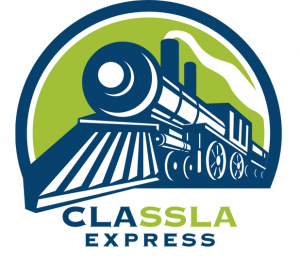 This series of six workshops aims to show participants how to use the CLASSLA web corpora in language research. The workshops comprise hands-on exercises showing how to create queries in corpora for Bulgarian, Croatian, Macedonian, Serbian and Slovene.
This series of six workshops aims to show participants how to use the CLASSLA web corpora in language research. The workshops comprise hands-on exercises showing how to create queries in corpora for Bulgarian, Croatian, Macedonian, Serbian and Slovene.
The workshops are based on using the CLARIN.SI NoSketch Engine concordancer in order to obtain data on meanings and uses of words, word forms, collocations and grammatical patterns. Moreover, the exercises will enable participants to explore uses of words and lexico-grammatical constructions in different types of texts.
The six workshops are aimed at university students of South Slavic languages, linguists, lexicographers, language teachers and digital humanities scholars. They provide an opportunity for both beginners and more advanced corpus users to query corpora which reflect contemporary language use. Furthermore, the workshops will introduce users and researchers of Macedonian to the first general corpus of that language – CLASSLA-web.mk. The practical skills which participants will acquire may be applied in language teaching (both L1 and L2), designing corpus-informed dictionaries and grammars, as well as in digital humanities.
The workshops will take place from April to September in five countries:
- 19 April 2024 – CLASSLA-Express stop in Zagreb, Croatia (Faculty of Humanities and Social Sciences, University of Zagreb)
- 26 April 2024 – CLASSLA-Express stop in Rijeka, Croatia (Center for Language Research, Faculty of Humanities and Social Sciences, University of Rijeka)
- 29 May 2024 – CLASSLA-Express stop in Belgrade, Serbia (International conference Leksikografski susreti, Faculty of Philology, University of Belgrade)
- 4 June 2024 – CLASSLA-Express stop in Skopje, North Macedonia (Blaže Koneski Faculty of Philology, Ss. Cyril and Methodius University)
- 26 June 2024 – CLASSLA-Express stop in Sofia, Bulgaria (International CLaDA-BG Conference 2024)
- 18 September 2024 – CLASSLA-Express stop in Ljubljana, Slovenia (Language Technologies & Digital Humanities Conference 2024, University of Ljubljana)
Reports from the workshops:
Registration and details on the CLASSLA-Express stops
Participation in the workshop is free. You can find more information about the registration and programme in the following webpages:
- CLASSLA-Express in Zagreb: The workshop has already been held – see the report from the workshop here. More information about the programme and location is available here.
- CLASSLA-Express in Rijeka: The workshop has already been held – see the report from the workshop here. More information about the programme and location is available here.
- CLASSLA-Express in Belgrade: The workshop has already been held. More information about the programme and location is available here.
- CLASSLA-Express in Skopje: The workshop has already been held. More information about the programme and location is available here.
- CLASSLA-Express in Sofia: Registration is closed. More information about the programme and location is available here.
- CLASSLA-Express in Ljubljana: Register here. More information about the programme and location is available here.
Agenda
1. Part 1 (90 minutes)
- Introduction: The usage-based approach to language; the advantages of using corpora in language research (with examples from the CLASSLA-web corpora)
- Exercises:
- Basic search: Concordances, Text types
- Advanced search: Filter, Collocations, Frequency
2. Coffee break (30 minutes)
3. Part II (90 minutes):
- Exercises: CQL queries
4. Discussion and closing (30 minutes)
The CLASSLA-Express team
The team is made up of two linguists and three NLP scholars from three CLARIN member countries: Bulgaria (CLaDA-BG), Croatia (HR-CLARIN), and Slovenia (CLARIN.SI).
Dr Ivana Filipović Petrović is a Senior Research Associate in the Linguistic Research Institute of the Croatian Academy of Sciences and Arts. She holds a PhD in Croatian Linguistics from the University of Zagreb. Her research focuses on the interface between phraseology and lexicography. She is currently involved in COST Action CA21167 Universality, diversity and idiosyncrasy in language technology (2022-2026). From 2018-2023, she was coordinator of the Dictionary of Croatian Idioms project. The resulting online dictionary, co-authored with Jelena Parizoska, was compiled using data from Croatian web corpora hrWaC and CLASSLA-web.hr. Ivana Filipović Petrović and Jelena Parizoska have co-authored four papers on using corpus data in lexicography. In 2019 they organized and convened three workshops on the use of the hrWaC corpus in studying idiomatic expressions and compiling idioms dictionaries.
Dr Jelena Parizoska is an Assistant Professor at the Faculty of Teacher Education, University of Zagreb. She holds a PhD in Linguistics from the University of Zagreb. Her research focuses on idiomatic expressions in English and Croatian within the theoretical framework of Cognitive Linguistics. She has taught university courses in figurative language, English syntax, lexicology and lexicography, and English for Specific Purposes. She is currently involved in two COST Actions: CA21167 Universality, diversity and idiosyncrasy in language technology (2022-2026) and CA22115 A Multilingual Repository of Phraseme Constructions in Central and Eastern European Languages (2023-2027).
Petya Osenova is professor, PhD in Contemporary Bulgarian Grammar (morphology, syntax and corpus linguistics) in the Faculty of Slavic Studies at Sofia University “St. Kl. Ohridski” and senior researcher in the Department of AI and Language Technologies at the Institute of Information and Communication Technologies, Bulgarian Academy of Sciences. Her scientific interests are in the fields of formal and computational linguistics, language resources, language modelling, lexicon-grammar interface. She was a key person in a number of EU projects, related to eLearning, Machine Translation, Language. She is the responsible person for the language resources in CLaDA-BG – the CLARIN and DARIAH joint framework in Bulgaria and the Bulgarian representative at the User Involvement Committee in CLARIN-ERIC. Petya Osenova specialized in computational linguistics as a postdoctoral fellow in the Tuebingen University, Germany (2003) and in Groningen University, the Netherlands (2004); as a Fulbrighter at Stanford University, the USA (2010). In 2018 Petya Osenova received the award of Clarivate Analytics for excellence in science research in South-Eastern Europe.
Dr Nikola Ljubešić and Taja Kuzman are researchers from the Department of Knowledge Technologies at the Jožef Stefan Institute, Slovenia. Their research interests cover a broad spectrum of natural language processing (NLP) tasks including web corpus construction (cf., MaCoCu project), development of tools for automatic linguistic annotation for South Slavic languages (cf. CLASSLA-Stanza pipeline), specialization of language models for under-resourced languages (cf., BERTić and XLM-R-BERTić models), development of speech corpora and automatic speech recognition models (cf. ParlaSpeech corpora and MEZZANINE project), benchmarking South Slavic NLP technologies, application of NLP methods to South Slavic dialects (cf. VarDial DIALECT-COPA shared task), and machine learning tasks, including hate speech detection (cf. IMSyPP project), topic detection, and automatic genre identification. They are the leaders of the CLASSLA centre (CLARIN Knowledge Centre for South Slavic languages) which offers expertise on language resources and technologies for South Slavic languages. Nikola and Taja are the main developers behind the CLASSLA-web corpora which are showcased in the CLASSLA-Express workshops.
About CLASSLA
The CLARIN Knowledge Centre for South Slavic languages (CLASSLA) offers expertise on language resources and technologies for South Slavic languages. Its basic activities are (1) giving researchers, students, citizen scientists and other interested parties information on the available resources and technologies via its documentation, (2) supporting them in producing, modifying or publishing resources and technologies via its helpdesk and (3) organizing training activities. Read more about CLASSLA’s activities and its mission in a Tour de CLARIN article, published here.
The helpdesk of CLASSLA can be contacted via helpdesk.classla@clarin.si. The helpdesk offers additional clarifications regarding the CLASSLA documentation (detailed below) and support in using, modifying, producing, or publishing resources and technologies for South Slavic languages.
The Knowledge Centre currently offers frequently asked questions (FAQ) documentation for the Slovene, Croatian, Serbian, Bulgarian and Macedonian language. It also offers documentation on how to use CLARIN.SI web services which currently cover Slovene, Croatian and Serbian.
The most relevant announcements, discussed in our mailing list, are made available here. You can subscribe to the mailing list here to be informed of new resources, technologies, events and projects for South Slavic languages.
CLASSLA is operated by CLARIN.SI, the Institute of Croatian Language, and CLaDA-BG.


